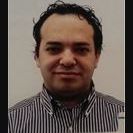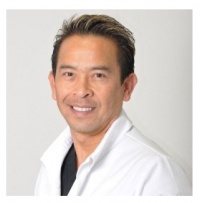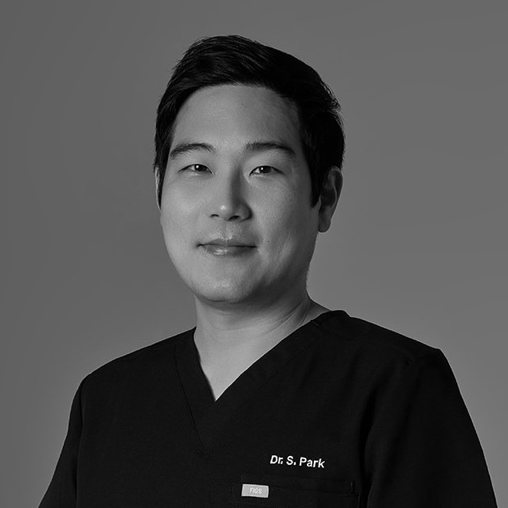
Mirhamid Salek DDS
Oral Medicinist
628 N Azusa Ave West Covina CA, 91791About
Dr. Mirhamid Salek is a Dentist practicing in Los Angeles, CA. Dr. He has been on the lead in the provision of quality dental services for over 25 years now. With a DDS degree, he was able to gain excellence in Orofacial Pain and Oral Medicine from USC, and he is currently a diplomate of American Orofacial Pain Board. Salek specializes in preventing, diagnosing, and treating diseases and conditions associated with the mouth and overall dental health.
Education and Training
Isfahan University of Medical Sciences and Health Services DDS 1993
Isfahan University of Medical Sciences and Health Services/Dental School DDS 1993
University of Southern CA/School of Dentistry Oral Medicine Certification
Provider Details

Mirhamid Salek DDS's Expert Contributions
How do dentists treat pulpitis?
Before explaining how dentists treat pulpitis, we need to know what pulpitis means. Pulpitis is inflammation of soft tissues inside of a tooth. Pulpitis can be reversible or irreversible. Reversible pulpitis is a mild to moderate inflammation, because of superficial decay or tooth crack, or even too much pressure during grinding and clenching. This type of pulpitis can be treated just by treating the cause of the problem, like receiving restorative treatment. reversible pulpitis is very severe inflammation, secondary to deep decays, with exposure of tooth intrinsic soft tissues to the bacteria, deep tooth cracks, or other damaging material, even chemicals which are used for filling a tooth. In this case, more aggressive treatments, like root canal therapy, may be required. Differential diagnosis between reversible and irreversible pulpitis is not a simple task. It needs experience and knowledge of the dentist and needed equipment and technology in the dental office. At A-Z dental care you can have all the necessary factors for getting the right answers. Dr. Salek is an experienced and knowledgeable dentist. Our office is equipped with the latest imaging technology for accurate diagnosis. READ MORE
Can you put a crown on a tooth without a root canal?
Crowns have three main roles in dental practice: First, the crown is good protection for a tooth that has been severely damaged and is on the verge of breaking, regardless of whether the tooth has received a root canal or not. Protecting the integrity of a tooth after RCT is a must, otherwise, it can easily break. A tooth with deep or large decay is prone to breakage if not protected by a crown. In these cases, there is no other option than doing a crown for the tooth, just for protection and prevention of breakage. Secondly, teeth can get a crown as an abutment for making bridges, and replacing missing teeth. In this case, the tooth may or may not need RCT. Thirdly, the crowning of a tooth may be considered for cosmetic reasons. Again, in this case, crowning can be done without doing a root canal depending on the tooth condition. READ MORE
Is retreatment of the root canal painful?
In some cases, after the first Root Canal Treatment (RCT), a second RCT may be necessary due to a lack of healing or the occurrence of a new infection. This second RCT is called retreatment. Since retreatment is performed on a tooth that has already been subject to RCT, no live nerve exists to cause pain. Furthermore, in all dental procedures that may cause pain, local anesthesia is administered to alleviate pain during the procedure, and prescribing antibiotics and pain medication is a common practice after many dental procedures. For these reasons, the patient should not be worried about experiencing pain during and after root canal retreatment. READ MORE
Why does my tooth hurt when I put pressure on it?
Different factors can cause pain by pressure on our teeth. All these multiple factors can cause inflammation on supporting tissues, periodontium, of the tooth structure in the jaw bone. Depends on the intensity, duration, history, and eventually type of the pain, plus clinical exam, and radiologic findings, a dentist can find the causation of pain. Read more on my webpage "Ask Your Dentist": https://www.atozdentalcare.com/ask-your-dentist/ Sometimes this pain is because of high spot on new filling or crown. This one is the simplest factor, which can be removed by adjustment on the restoration. But some cases are very complicated, such as tooth fracture, or cracked tooth. Other than that .... READ MORE
What is a bone graft?
Dental bone grafting is a procedure for preservation of tooth sockets. In this procedure, the dentist will graft a section of bone from another area of the patient’s body, or use a special bone grafting material, and graft it onto jaw bone. In the past, without utilizing this technique, the patient would have experienced bone loss and shrinkage of the jaw after losing a tooth. Vertical or horizontal shrinkage of the jaw has harmful consequences, such as problems for replacing the missing teeth, or depression on the facial muscles, which can cause cosmetic problems for the patient. Read more on my webpage "Ask Your Dentist": https://www.atozdentalcare.com/ask-your-dentist/ It is a misconception if one assumes that bone grafting is needed only in the case of dental implant. While bone grafting is usually required before and during this procedure, but it is not limited to dental implant..... READ MORE
Can sinus infections cause tooth pain?
A few years ago my wife showed up at my office with a severe pain in her upper teeth. Based on her dental history, I was sure that the pain could not be caused by damage to her teeth. After taking a panoramic x-ray to rule out other possible toothache causes, I noticed a remarkable sinus infection. Consultation with an ear-nose-throat (ENT) specialist, confirmed my initial finding of an acute sinus infection. Read more on my webpage "Ask Your Dentist": https://www.atozdentalcare.com/ask-your-dentist/ Toothache can cause feelings that could be associated with sinus infections and vice-versa, because they share a nerve. Patients with headaches, nose congestion and even fever, may not realize that these symptoms could be related their simultaneous toothache. Going to a dental office is the best thing to do in these circumstances. A dentist can make an accurate diagnosis based on a clinical exam and an X-Ray. READ MORE
How painful is it to get dental implants?
A dental implant, like many other dental procedures, should not cause pain and discomfort if done the right way and under adequate anesthesia. The first day after the procedure, however, the patient may experience some degree of mild to moderate pain. For this reason, prescribing pain medication and antibiotic, to prevent infection, is a standard practice. More explanation is available at my website page "Ask Your Dentist" https://www.atozdentalcare.com/ask-your-dentist/ If the dental implant is performed by an experienced and knowledgeable dentist and in a dental office equipped with the state of the art technology, the unexpected consequences should be minimal or non-existent. READ MORE
How long does dental implant pain last?
Placing dental implants, like other dental procedures, cannot cause any pain when patient has good anesthesia, or feeling numbness. After finishing the procedure maybe patient would feel some degrees of mild to moderate pain just for the first day. Pain medication and antibiotics should always be prescribed for the patient for pain and infection control. More info about implant is available on my website: https://www.atozdentalcare.com/dental-service/dental-implants/ If the dental implant is performed by an experienced and knowledgeable dentist and in a dental office equipped with the state of the art technology, the unexpected consequences should be minimal or non-existent. READ MORE
Ways to get rid of TMJ pain?
Before elaborating on this question, it should be made clear that TMJ is not a disorder, but one of the body’s joint like a knee or an elbow joint. TMJ is the joint hinging lower jaw (mandible) to the skull bone. Therefore, any dysfunction of the TMJ, like movement limitation, should be called a TMJ disorder or TMD. Jaw cramps in one of the signs and symptoms of TMD. Other diagnostic symptoms of TMD include: pain, noise, deviation of jaw during opening and closing of mouth, and jaw locking. More info on TMJ disorder is available on my website: https://www.atozdentalcare.com/dental-service/orofacial-pain-specialty/tmj-disorders/ All of TMJ disorder symptoms should be taken seriously and the patient should be evaluated by a dentist, or by a TMJ specialist in complicated cases. READ MORE
Do root canals hurt after?
Before I answer this particular question, I want to discuss the overall possible consequences of a root canal. Root canals, like other medical and dental treatment, can have side effects and complications, as well as very important benefits. You can read more at my website about Root Canal: https://www.atozdentalcare.com/dental-service/root-canal/ One of the possible consequences of a root canal is inflammation and/or pain. Actually, inflammation is one of our body’s natural immune system responses. Inflammation is a result of infection, irritation, or injury – all of which might have necessitated your root canal in the first place. Inflammation has four signs; redness, warmth, swelling, and pain. Inflammation typically begins in the ligament surrounding the tooth and spreads to neighboring tissues. Pain and discomfort when biting down or chewing foods may present itself because of inflammation of ligaments. These symptoms should go away after a few days with a dentist’s care. The chances of this kind of complication can increase when a dentist is not as expert as they ought to be. READ MORE
If your jaw cramps, does it mean you have TMJ?
Before elaborating on this question, it should be made clear that TMJ is not a disorder, but one of the body’s joint like a knee or an elbow joint. TMJ is the joint hinging lower jaw (mandible) to the skull bone. Therefore, any dysfunction of the TMJ, like movement limitation, should be called a TMJ disorder or TMD. If one poses this question to a TMJ specialist, like Dr. Salek of A-Z Dental Care in West Covina, the answer would be yes, jaw cramps in one of the signs and symptoms of TMD. Other diagnostic symptoms of TMD include: pain, noise, deviation of jaw during opening and closing of mouth, and jaw locking. All of these symptoms should be taken seriously and the patient should be evaluated by a dentist or by a TMJ specialist, in complicated cases. READ MORE
How long does it take for a damaged nerve to heal?
During the dental procedures, nerve damage can happen, depends upon nature of procedure, or dentist’s knowledge and skill. Sometimes damage is very severe to a main branch of nerve. On the other hand, this damage can be very minor and for very terminal accessory nerve branch. Based on the damage and damaged nerve answer to this question can be different. At the same time, the way and considering golden time for treating damaged nerve is very important for getting good result, and treating patient with minimum consequences. Therefore, as you can see, it is very hard to tell and give a timeframe for healing processes of damaged nerve. As everyone knows, prevention of a problem is always more easily, than solving a problem after happening. Even it can cause less cost and more guaranteed right outcomes and results. READ MORE
How critical is a wisdom tooth abscess infection?
Wisdom teeth infection is very serious and could even become life threatening if not properly treated. This type of infection can quickly spread throughout the body with the circulation of blood, which will then require patient hospitalization. On the other hand, since wisdom teeth are near head and neck area, they can obstruct air way, cause brain infection, and even result in death. People must take wisdom teeth infection very seriously and immediately seek treatment. More explanation is available at my website page "Ask Your Dentist" https://www.atozdentalcare.com/ask-your-dentist/ When you need to have a consultation.... READ MORE
Should I go to the dentist if my gums are swollen?
Swollen gums, secondary to inflammation or infection of the gingiva (gums), are one of the most frequent signs of gum diseases. However, there are many additional causes of swollen gums, including rare autoimmune diseases like pemphigus, pemphigoid, and lichen planus, or more common ailments like gingivitis, periodontitis, and tooth infections. Each of these diseases warrants a visit to the dentist for diagnosis and treatment because they may be indicators of dangerous local or systemic consequences, and can be a sign of an underlying systemic disease. More explanation is available at my website page "Ask Your Dentist" https://www.atozdentalcare.com/ask-your-dentist/ Sometimes, treatment of swollen gums is not complicated. For example, a deep cleaning .... READ MORE
Can teeth grinding cause headaches?
Grinding, or other para-functions, such as chewing gum, eating hard food stuff, and clenching, can cause tension and pressure on masticatory muscles which are needed for mouth opening and closing. When someone walks or runs beyond his or her leg muscles’ capability, overwhelming muscles, soreness, activity limitation, and even pain on the relevant joints are possible. The same is possible with your mouth and jaw. More explanation is available at my website page "Ask Your Dentist" https://www.atozdentalcare.com/ask-your-dentist/ Localized myalgia and myofascial pain are two unpleasant outcomes of overused muscles. Myofascial pain ..... READ MORE
Would I need to take opioids after my extraction?
Usually, extraction can cause mild to very severe pain after the procedure. Inflammation, secondary to the trauma of the procedures and the immune system reaction needed for healing, is the main reason for pain. In the case of a chronic or active infection for involved tooth, the risk of pain is higher. More explanation is available at my website page "Ask Your Dentist" https://www.atozdentalcare.com/ask-your-dentist/ 1-Not all extraction procedures require opioid prescriptions. 2-Opioid medication should be avoided as much as possible, because of the well-known side effects and potential consequences. READ MORE
What does it mean when my gums are sore?
There are numerous causes of pain in our gingiva (gums). Infection, trauma, tooth problems, inflammation, and even dysfunction in the nerves (neuropathy and neuralgia). Depending upon the pain described by the patient, his or her oral health history, and intraoral or extraoral pathological changes, an expert dentist can diagnose the problem and help the patient treat or manage it. More explanation is available at my website page "Ask Your Dentist" https://www.atozdentalcare.com/ask-your-dentist/ Sometimes the diagnosis of the source of the pain is very simple, like verifying a broken and infected tooth clinically or via an x-ray. However, sometimes the problem is not as simple as a broken tooth. For example in the case of autoimmune diseases, like lichen planus, pemphigoid, and pemphigus, some changes are rooted in patients’ gingiva, such as redness and ulceration. READ MORE
How can I tell if I'm grinding my teeth?
Based on a great deal of research and many studies, we know that more than 30 percent of children grind their teeth. This number for adults is going up, and more than 60 percent of us grind at night (bruxism) or during the day (clenching). More explanation is available at my website page "Ask Your Dentist" https://www.atozdentalcare.com/ask-your-dentist/ However, some signs and symptoms can help and inform you that you may grind or clench. These include sensitive teeth, pain, stiffness, as well as tiredness on the TMJ (temporomandibular joint) and masticatory muscles. READ MORE
Do I always need a crown with a root canal?
There are several reasons for getting a crown after a root canal. These include: 1-Usually, after advanced decay, a tooth needs a root canal. With huge cavities, almost all of the main part of the tooth is gone. This amount of damage to the tooth structure doesn’t let the dentist restore the tooth properly. A crown can help with the final restoration. 2-For cavity preparation, removing the roof of the pulp chamber is required. Otherwise, finding the canals and getting access for cleaning and shaping the canals is impossible. More explanation is available at my website page "Ask Your Dentist" https://www.atozdentalcare.com/ask-your-dentist/ 3-Pulp chamber roof removal compromises READ MORE
Can my diabetes affect my teeth?
Almost 10% of Americans have diabetes. Diabetes has a two-way relationship with oral health. Diabetic patients should be more concerned with their oral hygiene than people who are not suffering from this disease. 1-Diabetes can increase the risk of tooth decay or cavities. 2-Diabetes can compromise immune system function. Immune system function is very important for the protection of teeth and their supporting tissues. More explanation is available at my website page "Ask Your Dentist" https://www.atozdentalcare.com/ask-your-dentist/ READ MORE
Areas of expertise and specialization
Treatments
- Implant: Bring back your missing teeth, anywhere from one tooth to full mouth
- Root Canal: for all the toughest cases such as curved, calcified, and even retreatmet
- Filling & Cleaning: All aspects of restorative, and operative dentistry
- Surgical Extractions
- Immediate tooth Dentures with three months warranty
- Oral Medicine Specialty,diagnosis and treatment for patient with: -Oral Cancer -Oral mucosa infection -Oral mucosa inflammation
- Orofacial Pain Specialty, diagnosis and treatment for patient with: -TMJ disorders -Sleep apnea -Chronic pain with unknown origin
- Dental treatment for patients with compromise diseases
Professional Memberships
- American Academy of Oral Medicine
- American Orofacial Pain Board
- American Dental Association
- Member American Academy of Oral Medicine 2013
- Diplomate American Orofacial Pain Board 2013
- Member California Dental Association (CDA) 2017
Publications
- SymbiosisOral Multifocal Papillary Lesions in a Young Child: Clinico-Pathologic and Medico-Legal Consideratio2013
- OdontologyOral manifestation of Crohn's disease without concomitant gastrointestinal involvement2013
- Oral Surg Oral Med Oral Pathol Oral RadiolMetagenomic investigation of microbes and viruses in patients with jaw osteonecrosis associated with2012
Mirhamid Salek DDS's Practice location
A-Z Dental Care
628 N Azusa Ave -West Covina, CA 91791Get Direction
Request An Appointment With Mirhamid Salek DDS | Oral Medicinist
Please note that this request is not considered final until you receive email notification confirming the details.
In the event the doctor is not yet registered with FindaTopDoc, we will contact the office on your behalf in an effort to secure your appointment.
Mirhamid Salek DDS's reviews
Write ReviewRecommended Articles
- What Is Dry Socket?
What is Dry Socket?Getting a tooth extracted is far from being an enjoyable experience for anyone, and no doubt that after the extraction, one feels discomfort for some time. However, if the pain remains even after a few days, it should be seen as a tip-off of an oral condition called dry socket.Dry...
- When are Dental Crowns Recommended?
What is a Dental Crown?Dental crowns are used for saving damaged or broken teeth, as well as when a tooth requires a root canal treatment. In order for the dental crown to get attached to the tooth, the tooth needs to be reduced in size first.A dental crown is a prosthetic superstructure that...
- Wine May Prevent Cavities
Researchers from Italy's University of Pavia have revealed that red wine and white wine may fight against the bacteria that causes cavities. But the study was done invitro; it will be some time before this will be recommended as a method to prevent cavities.For this study, researchers used two types...
- What are Canker Sores?
Canker sores are small, painful ulcers that develop in the lining of the mouth. These are one of the most common mouth ulcers, and the sores make eating difficult. Studies show that about 20% of the population suffer from these painful sores. Canker sores are classified into simple and complex...
- Plaque Attack: Habits That Lead to Plaque Formation
It goes without saying that good habits are the key for healthy teeth without plaque. Richard Price, DMD, spokesman for the American Dental Association, says that having teeth without plaque is easy. One needs to be consistent with healthy habits to have the best results.Plaque is a film of bacteria...
- What is a Yeast Infection?
Candidiasis is a type of fungal infection resulting from overgrowth of the yeast genus, Candida. The most predominant species in this genus is Candida albicans. The yeast survives in different parts of our body, including the skin, genitals, throat, and mouth. Growth of these organisms commonly...
Nearby Providers
- Dr. Peter Young DDS301 West Huntington Drive Arcadia CA 91007
- Kazem Hosny D.D.S.126 W B St Ontario CA 91762
- Dr. Chuck Le DDS637 N. Euclid St. Anaheim CA 92801
- Dr. Sung Wook Park DDS14930 Imperial Hwy La Mirada CA 90638
- Dr. Jamie Azdair DDS330 N Garfield Ave Alhambra CA 91801
- Dr. Joaquin Antonio Siles DDS747 E Chapman Ave Orange CA 92866
Nearest Hospitals
WEST COVINA MEDICAL CENTER, INCl
725 S ORANGE AVE WEST COVINA CA 91790CITRUS VALLEY MEDICAL CENTER-IC CAMPUSl
210 W SAN BERNARDINO ROAD COVINA CA 91723FOOTHILL PRESBYTERIAN HOSPITALl
250 S GRAND AVE GLENDORA CA 91740








